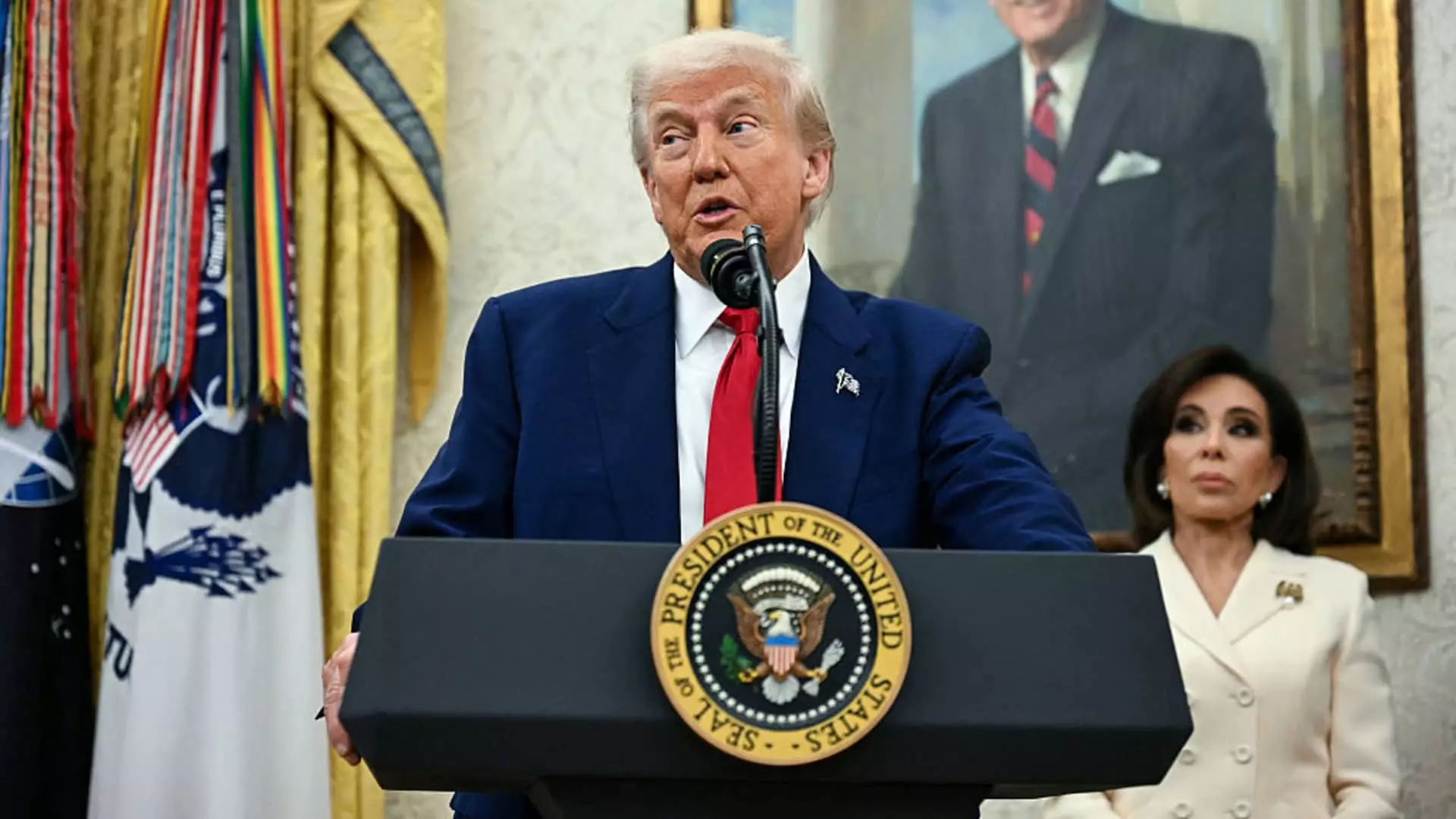In the chaotic dance that is American trade policy under the Trump administration, the recent waves of tariff announcements resemble more of a dizzying tango than a tactical waltz. The neologism “TACO trade,” spawned from the depths of political commentary, cleverly encapsulates the erratic nature of President Trump’s tariff decisions—”Trump Always Chickens Out.” This dismissive label, while somewhat tongue-in-cheek, speaks volumes about the unpredictability that has become synonymous with Trump’s economic strategy. The challenge we face is not merely the trade policy itself, but the overarching uncertainty that grips our economy, sending ripples through markets at every tweet and press conference.
Confusion Masked as Negotiation
When confronted with accusations that his tariff strategies lack continuity and courage, Trump retorts with the bravado that characterizes his administration. He insists that these abrupt changes are not signs of cowardice but rather strategic negotiation tactics. This rhetorical dissonance raises eyebrows—not from skepticism of negotiations themselves, but from a growing concern that the art of diplomacy is being reduced to bluster and bravado. In a world that thrives on reliable economic indicators, such back-and-forth maneuvering disrupts markets, leading to instability that can harm the very American workers Trump claims to champion.
A Lethargic Market Response
The statistics paint a striking picture. When tariffs are announced, the stock market plunges; when postponed, it rebounds. The oscillation provides a pulse check on investor confidence, yet what emerges is far from a healthy rhythm. Instead, it reveals a precarious balancing act between hope and despair. Investors now find themselves caught in a perplexing loop, weighing the benefits of improved trade negotiations against the fallout of the president’s knee-jerk policy changes. As stocks rollercoaster across headlines, one begins to wonder: are we witnessing the birth of a robust economic recovery or merely a façade that collapses at the first sign of stress?
The Illusion of Tough Stance
Moreover, dwelling on the effect of hardball tactics leads to a rather ironic outcome. The very approach Trump employs to project strength ultimately undermines the credibility of his presidency. By portraying adversarial tariffs as a sign of relentless negotiation, Trump inadvertently positions himself as a leader whose threats might be just as transient as the markets he influences. The ultimate outcome is a belief that American policies today are dictated more by sensationalism than by prudence. If negotiation and steadfastness were objective criteria for success, one would find it difficult to argue Trump’s effectiveness in fostering meaningful international relations.
In the grand theatre of international trade, the American narrative under Trump is a story marked by volatility and inconsistency. This is not merely a critique of a single strategy but rather a call for reasoned and coherent policies that can solidify trust—both domestically and internationally. The TACO trade phenomenon symbolizes the need for a mature dialogue about American economic strategy, one where flexibility doesn’t lead to fragility, and strength is not defined by the ability to bluster without follow-through. The American people deserve policies that build a stable economic future—driven by integrity rather than improvisation.


Leave a Reply